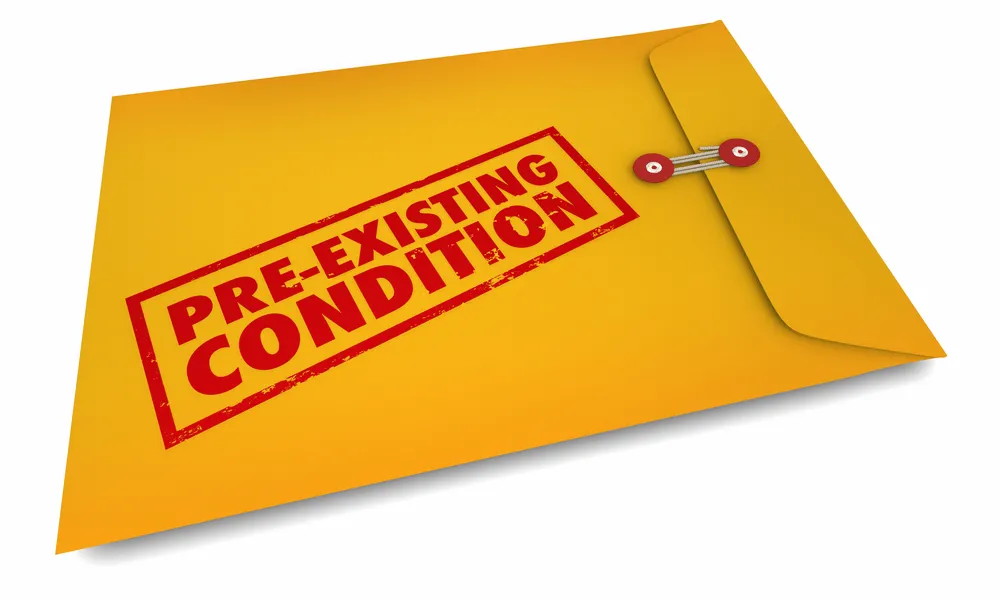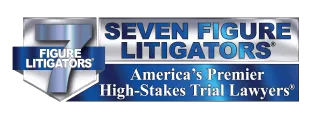If you have been injured and intend to seek compensation from the at-fault party, an accident attorney can ensure you receive the compensation you are owed. However, individuals who had a pre-existing condition before the event may be concerned about their eligibility for reimbursement. Your personal injury lawyer in Cheyenne, Wyoming will help you determine the best course of action to prove that you are entitled to compensation for your new injuries.
Can I Still File an Injury Claim if I Had a Pre-Existing Condition?
Yes, a pre-existing condition does not disqualify you from filing a personal injury claim. While you may worry that your pre-existing condition prevents you from seeking reimbursement for your injuries, a skilled personal injury lawyer can help you navigate the steps needed to receive compensation. Even if the nature of your injury has caused your pre-existing issues to worsen, you can seek compensation for your suffering and the medical bills accumulated during your injury.
It is essential to remember that although you can still file a claim, your case will require more legwork and extensive documentation. Therefore, you’ll want to contact an accident attorney as soon as possible so that they can begin collecting the necessary medical records to prove the validity of your claim. When you work with a lawyer, they will handle the insurance company, manage the required documentation, and minimize your stress throughout the claims process.
Let Your Accident Attorney Handle the Insurance Companies
While it would be nice if the at-fault party’s insurance company acknowledged their client’s wrongdoing and compensated you appropriately, that isn’t how insurance adjusters operate. Instead, the adjuster will approach your claim with a single goal: to convince you to settle for the lowest sum possible. When you have a pre-existing condition, they will try to prove that any issues you have are due to your prior health problems and entirely unrelated to the current incident.
They may do this by requesting detailed medical documentation in an attempt to catch you in a lie or convincing you that your claim is shaky and encouraging you to settle for a low amount. Insurance company representatives will also try to intimidate people into dropping their claims. As the average person doesn’t have experience filing an injury claim, they may choose to give up their chance at compensation to avoid the hassle.
What Constitutes a Pre-Existing Medical Condition in Cheyenne, Wyoming?
When filing a personal injury claim, pre-existing medical conditions are defined as illnesses or damage that afflicted you before the injury you received due to the defendant’s action or negligence. In layman’s terms, any injuries or medical conditions you had before the recent accident qualify as pre-existing conditions. Even innocuous issues that were not impacted by the incident qualify as pre-existing conditions, such as pre-diabetes or chronic low blood pressure.
Example of a Pre-Existing Medical Condition
Say your boss instructed you to work in an environment where you were exposed to black mold without warning you of the danger or providing protective gear. If you now suffer breathing difficulties due to their negligence, you may want to file a personal injury claim against them. If you were diagnosed with asthma before being exposed to the mold, your asthma would be a pre-existing condition.
Your lawyer will have to prove how your current breathing difficulties are exacerbated due to mold exposure and that your current health issues stem from your mold encounter. Pre-existing conditions that are negatively impacted due to the defendant’s actions usually carry significant weight when determining the outcome of your claim. Your accident attorney will be able to predict how your pre-existing injuries will influence your specific claim.
How to Recieve Maximum Compensation When You Have a Pre-Existing Medical Condition
Collect Evidence Regarding the Accident
A critical aspect of filing a personal injury lawsuit is collecting documentation to support every statement you make. Whether you were injured in an incident in the workplace, a car accident, or someone’s negligence, you’ll want photos of the scene, statements from any witnesses present, and police reports. Without evidence backing your side of the story, insurers will be unlikely to offer a fair settlement, and if your claim goes to court, a jury will want to see the evidence.
Be Meticulous When Disclosing Prior Health Conditions
Even though you may be tempted to withhold information about prior medical conditions, dishonesty can cause you to lose potential reimbursement for your injuries. While some individuals believe that insurance adjusters will not look into their medical history, this belief is false and could prevent you from attaining the maximum settlement for your injuries.
Take care that you do not overlook any previous conditions by accident either. Although you may leave out something inadvertently, failure to disclose an illness, by accident or intentionally, will discredit you as a reliable source of information. Adjusters and juries will both doubt the veracity of your claims and be hesitant to trust your statements.
Seek Medical Care
When you receive medical care following the accident, you begin the process of documenting your injuries. Medical care received following the accident is concrete evidence that you were injured due to the new incident. Not only does your care provider assess the damage you have obtained and begin the process of addressing your injuries they will also take notes that support your claim.
You can also ask your doctor for a projected treatment outline. This outline is essential to your claim if the accident caused an issue that will be ongoing or aggravated your pre-existing condition in a manner that will impact you in the long term. Additionally, having a rough estimate for ongoing expenses from the accident, such as medication, physical therapies, surgeries, and even lost wages, will help you secure the compensation you need to cover ongoing care.
Communicate With Your Care Providers
Let your healthcare providers know you will be seeking compensation for your injuries. By informing them of this fact upfront, they will be sure to take thorough notes regarding your condition and can provide you with copies of X-rays, MRIs, and other test results to help verify your claim. They will also be aware of your situation if the opposing party’s insurance company contacts them to confirm your injuries.
In addition, if your pre-existing condition requires you to visit multiple care providers, you’ll want to communicate with all of them about your case. For example, suppose your pre-existing condition is a thyroid disorder. Even if none of your injuries affect your thyroid, you’ll likely still need documentation from the doctor who manages your thyroid medication to provide a statement regarding your condition.
Be Honest With Your Personal Injury Lawyer
The only way your personal injury lawyer can help you is if you provide them with a transparent view of your medical history. Withholding information from them prevents them from being able to pursue compensation on your behalf. Even accidentally omitting information can hurt your claim and limit your lawyer’s ability to help you.
Pre-existing conditions do not prevent you from filing for the compensation you need to reimburse your expenses and cover lost wages following an accident. Although your claim may require more work, a skilled lawyer in Cheyenne, Wyoming, can ensure you are granted fair compensation. Contact the Ochs Law Firm and speak with a compassionate attorney today.







